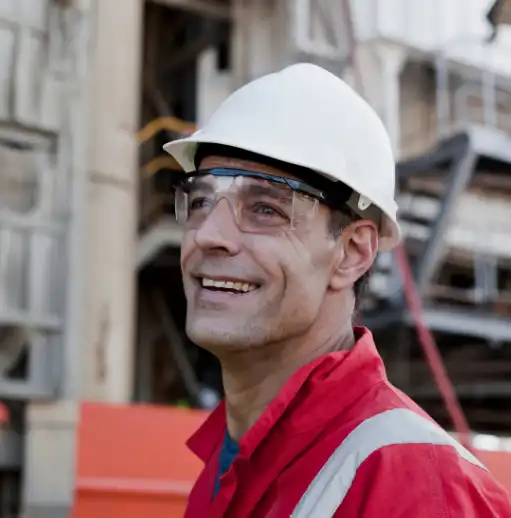
Facility managers are responsible for keeping integrated facilities management humming along smoothly. It’s a job that requires day-to-day oversight and the ability to adapt to changing facility needs. But more than that, FMs need the foresight to engage in facility planning.
What is the meaning of facility planning? It’s more than just keeping up with the demands of the workplace. Facility planning is about staying ahead of them. With a forward-looking mindset, facility managers can maximize space, improve the workplace experience, and keep costs low. It all starts by observing current trends and pinpointing the pivotal workplace needs.
The best way to explain the need of facility planning within operations management is to look at it through the lens of fostering efficiency. How can it create efficiency in the context of employees and their work? In budgeting and cost planning? In space utilization and usage? At its core, facility planning is the tool that unlocks efficient operations management.
The goal: Creating efficiency
Understanding the importance of facility planning means looking at efficiency. How effectively are you using the space available to you? Are you supporting employee productivity? Where does waste exist within your workplace and what can you do to minimize it?
The goal of facility planning is to not only recognize opportunities for efficiency, but to anticipate them as well. Alleviating inefficiencies within the workplace has rippling effects across the entire business. For example:
- Recognizing workspace is insufficient prevents overcrowding and the dip in productivity that comes with it. It can also serve as the foundation for a cost-saving hot desk or remote work arrangement.
- Reviewing vendor contracts helps FMs move to an integrated facilities management approach, consolidating costs and streamlining the property management aspect of facilities oversight.
- Reviewing occupancy data from an office IoT gives facility managers the data they need to anticipate space requirements for a growing workforce. This supports better planning for expansion costs and logistics.
In these scenarios and others like them, the emphasis is on facilities planning. The need of facility planning is evident any time there are recognized efficiencies or areas of opportunity. Facility managers observe, understand, and act on key areas to chart future improvements. The goal is to optimize the different facets of business by making improvements to the one thing touching them all: facilities. Efficiency in planning and execution is critical.
Facility planning objectives
Looking ahead at facility needs is important, but not without context. Before addressing anything, FMs need core facility planning objectives at the forefront of their observations and decision-making. What are your facility management goals and objectives?
- Keeping costs as low as possible?
- Using the workplace to attract talent?
- Imbuing a sense of culture and belonging?
- Maximizing productivity?
- Planning for growth?
- Improved space utilization?
The objectives are likely a combination of all these and more. Order them by importance and assess the impact they’ll have. Then, start looking at what you can do to shift the momentum in the right direction.
Don’t forget to set benchmarks. Objective improvements are only actualized when you can measure change. Create systems for collecting and measuring data to dictate future facility changes. Whether it’s through the IoT, employee feedback, or financial reporting, tracking the effects of change helps refine future facilities planning. Just make sure benchmarks align with objectives.
Aspects of facility planning
Facility planning is as broad in scope as the job duties of facilities managers. As a result, FMs need to align objectives and trends with the different segments of facilities themselves. These include:
- People
- Technologies
- Building and landscape
- Processes and practices
Each part of the business contributes to planning. For example, if your goal is to improve space utilization and plan for the future, you’ll need to observe how it fits into the various aspects of facilities planning. How does space utilization impact people, technology, the building, and your processes? Every facilities planning initiative should be stacked against individual pieces and then considered as part of the whole.
Looking ahead at how facilities impact operations give businesses an edge for improvement. When you understand how facilities impact your business’ core pillars, it’s possible to work backward, making improvements that facilitate best results.
The importance of facility planning in operations management
What is facility planning in operations management? It’s the act of improving facilities to foster continued success in the business. Your facilities touch every part of the business. Planning ahead to means looking thoroughly at facilities and how to improve them. The need of facility planning in operations management is invaluable—a core driver of betterment across the workplace and across the organization.
Facility planning is like any other mode of planning. You plan for financials and hiring, product development and marketing—why not facilities, too? Facilities are the second-largest cost behind employees. It makes sense to continuously plan for facility evolution. Whether change is a result of demand or careful observation, thorough facilities planning ensures it comes to fruition.






